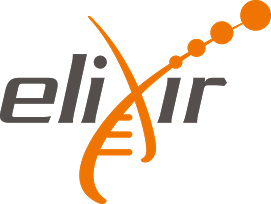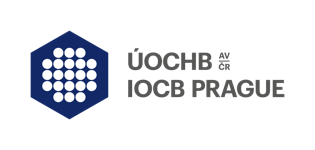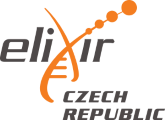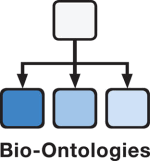Accepted Posters
If you need assistance please contact submissions@iscb.org and provide your poster title or submission ID.
Track: Education
Short Abstract: The Global Organisation for Bioinformatics Learning, Education & Training (GOBLET) recognises the value and importance of internationally-recognised standards in data-driven science, including the importance of annotating training materials to facilitate their re-use and interoperation (e.g., via plug-and-play modules, mixing and matching of course components, etc.). To this end, the goal of GOBLET’s Standards Committee is to contribute to the open science data-life-cycle, by working on standards activities, with a particular focus on the annotation of training materials and events. Well-annotated materials will help to make them more FAIR (Findable, Accessible, Interoperable and Re-usable) for the benefit of the bioscience community. We also aim to identify the standards that bioscientists are aware of, and to offer guidance on their uptake. These activities will help to identify current training needs in the area of data standards. Overall, the goals of the committee are to: 1) lead discussions on how to create, describe and improve standards for describing training events and materials, in collaboration with existing efforts; 2) raise and improve awareness of standards in the life-science and bioinformatics communities. 3) Engage communities in adopting and further developing standards relating to training materials and events. In this poster, we describe the committee, its activities (including our work with ELIXIR and Bioschemas to develop minimum standards for training materials), and preliminary results of an ongoing survey on standards awareness and uptake by bioscientists.
Short Abstract: Scalability is a key challenge in bioinformatics. Data management, analysis pipelines, compute infrastructure, visualisations, and training must all scale to address ever-larger experimental designs, and the increasing prevalence of data-intensive life science research. ELIXIR, GOBLET, and the Galaxy Training Network (GTN) have teamed up to create reusable and community extensible bioinformatics training materials, available online for individual life science researchers and trainers. Thanks to this community led effort, a series of Galaxy-based tutorials were developed to teach numerous data analysis topics, ranging from genomics to proteomics to metabolomics. Training on Galaxy administration and development is also included in this effort. The content is developed in Markdown, stored in GitHub and separated from the presentation on the website, facilitating its development and updating by the community. The technological infrastructure needed to teach is provided with Docker images for each topic and the datasets are stored in Zenodo with assigned DOIs. All materials are annotated by a rich set of metadata and automatically propagated to ELIXIR’s TeSS portal. This approach creates tutorials that are accessible, easy to find and use (FAIR) by individuals and by trainers for workshops. This poster will highlight the approach taken, how it addresses the scalability of presenting, creating, and maintaining training materials, as well as the resulting products. We will also report on the the recently held ELIXIR/GOBLET/GTN hackathon for Galaxy training material re-use and the community’s future plans.
Short Abstract: ISCB Student Council initiated the ‘Regional Student Groups’(RSG) in 2006 to facilitate interactions between the local young scientists in the field of computational biology across the globe. RSGs have developed a platform for young computational biology researchers and students at local regions to nurture networking potential and foster bioinformatics education, thus overcoming the challenges in the regional computational biology community. Established with young researchers from three countries, 30 RSGs are now actively operating in various parts of the world. RSGs organise different events, such as symposium and virtual meetings, with the aim to disseminate science and provide training on cutting edge topics in computational biology. These events also create an opportunity for national and international collaboration among early-career scientists. The spectrum of such initiatives organised by the RSGs plays an important role to update the delegates about the recent happenings in the field, and provide opportunity for students to foster their management and organisational skills to further their career prospects in academia and industry. Our recently published RSG narrative highlights various initiatives taken by RSGs at local as well as in collaboration with other RSGs[1].The article elaborates on how RSGs have been instrumental in maintaining gender diversity across organising teams. We also describe the various challenges RSGs tackle while operating in their local regions. In this presentation, we present the way RSGs have been dispersed with different operational style and workings but with a mission to pose a crucial framework for the networking and educational potential of upcoming computational biologists. 1.doi:10.12688/f1000research.10420.1
Short Abstract: Bioinformatics has become one of the most important part of life sciences and is of great importance in a broad pallette of scientific domains. Our challenge is to develop ELIXIR-SI eLearning platform (EeLP) and eLearning courses in particular that would result in the generation of trained human resources in bioinformatics in Slovenia and abroad. Our mission is to provide high quality education in bioinformatics to the current and next generation of bioinformaticians and life scientists. Many of these specific needs are already met by our eLearning courses. However, besides interactive learning materials we also intend to provide interactive computing environment embedded into EeLP. To this end, we use Galaxy, an open, primarily web-based platform for reproducible computational biomedical research. Galaxy can also be accessed programmatically, for example through shell scripts. We use Bioblend library for interacting with Galaxy’s API. We implemented Galaxy’s modules for exploratory analysis, visualizations, and workflow management directly in EeLP. Our future vision is to connect EeLP directly to the HPC cluster and to sequencer and run workflows whenever data is ready. On the other side, if we want to use already existing data sets it is of utmost importance to input them from well curated data sources. For that reason, one of the first use cases will use plant science data annotated with GoMapMan (http://www.gomapman.org). We have shown here that eLearning tools such as EeLP is promising for complementing bioinformatics tools and services.
Short Abstract: The Harvard Chan Bioinformatics Core provides consulting and training services to the Harvard community. Three years ago, we initiated a new training program designed to empower researchers not only to understand next generation sequencing but also to perform analysis of their own data. Our goal has been to develop local experts in the community, within labs and departments, who can help address the bottleneck in high throughput data analysis. Our training curriculum is guided by class survey results and observed trends from ongoing consulting requests to meet the needs of our community. The evolution of the program has progressed from teaching NGS overview workshops using Galaxy to focusing on the command line through introductory workshops for Linux, R, and differential expression, as well as, an in-depth NGS analysis course spanning 6-weeks and covering multiple NGS methods. Over the last two years we have modified not only the content, but also the methods for organizing the courses. We based these changes on trial and error, feedback from exit survey results, classroom observations and collaboration with external groups. These changes, big and small, have resulted in higher levels of attendance, lower rates of attrition, increased workshop satisfaction, and easier troubleshooting in the classroom. I will present on the methods we have used to target appropriate audiences, the techniques for improved material design for aiding retention and facilitating hands-on tutorials, and our strategies for better evaluation and generation of feedback.
Short Abstract: As the need for bioinformatics training grows, so too does the challenge of reaching and catering for a diverse audience. Since 2015, EMBL-EBI has been running fortnightly webinars which provide how-to guides and updates on our bioinformatics resources alongside webinars on special topics. These webinars have helped us build an interactive learning experience that reaches across the globe. Demand for these webinars continues to grow with particular interest in programmatic access and developing bioinformatics workflows to answer biological questions. In May 2017, we launched a new series of five webinars entitled “EMBL-EBI, programmatically: take a REST from manual searches”. The first webinar introduces the concept of programmatic access, how to do it and best practice guidelines. It is followed by four webinars featuring Europe PMC, Ensembl, UniProt and PDBe that demonstrate how to perform key biological tasks programmatically. This series is challenging as it needs to address the needs of both novice and advanced users. Designing the series was a collaborative process involving trainers from across EMBL-EBI resources. We worked together to define basic content, the learning pathway and a consistent approach to webinar presentation. To enhance the potential of these webinars, they will be combined with additional information to form a course in our e-learning platform, Train online. The resulting course is therefore flexible, expandable and will complement existing documentation by framing programmatic access in the context of a biological question. This series provides a framework which we will look to exploit for further topics over the coming year.
Short Abstract: Developing practical, hands-on computational skills is an important learning goal in most life science education programs. While computational biology and bioinformatics are nowadays an inherent part of most life science degrees, it remains a challenge to activate students to employ such diverse skills in a practical research context. More specifically, the large-scale, complex datasets that are now omnipresent in research are not trivial to integrate in a life science education curriculum. In this education poster we present a formula to allow students to acquire hands-on skills with the data-driven study of complex biomolecular datasets. The students investigate a research question in virus-host interactions at a functional proteome level using a range of computational network biology techniques. The challenge is based on recent, real world, publicly available (interaction) data and software. We present the concept, and methods and share our experiences from an extensive evaluation of the student learning outcomes.
Short Abstract: The aim of the ELIXIR-EXCELERATE Training Programme (WP11), which constitutes the major part of the ELIXIR Training Platform, is to build a sustainable training infrastructure for ELIXIR’s community - encompassing both a technical infrastructure and training expertise, as well as mechanisms for guaranteeing quality of training. The ELIXIR training infrastructure consists of: (i) training evaluation methods and metrics, (ii) the ELIXIR Training Portal TeSS, (iii) an eLearning Platform and (iv) the Virtual Coffee Room. A crucial part of the training infrastructure is formed by the people involved in training, and more specifically, by the Training Coordinators representing each of the 21 ELIXIR Nodes. WP11 also develops and delivers training in topics that have been identified as training gaps in selected application areas within the ELIXIR community. In the last 18 months, 32 training workshops took place funded or co-funded by EXCELERATE, of which 6 were eLearning training courses. Further training gap analysis was carried out by the use of a training survey, sent out across the ELIXIR Nodes. The survey concluded that there was a need to prioritise training for the Use Cases and to improve the training capacity in the Nodes to deliver this training. The Train the Trainer subtask is ensuring that a community of expert trainers is built, not only to improve training capacity across the ELIXIR nodes, but also to further the impact of the ELIXIR developed infrastructure and resources.
Short Abstract: The widespread adoption of high-throughput sequencing technologies among the Australian life science research community is highlighting an urgent need to up-skill biologists in the use of tools for handling and analysing their data. In addition, bioinformaticians come from a wide range of backgrounds and are often required to gain skills in handling new data types. Furthermore, rapid ‘omics’ technology churn adds to the demand for updated and on-going training in new tools and analysis methods. Commonly, bioinformatics trainers are volunteers who run training courses on a sporadic basis. Due to a scarcity of skilled trainers, there are still gaps in bioinformatics training provision nationally. Since 2012, groups of Australian bioinformaticians have attended Train-the-trainer (TtT) workshops at the European Bioinformatics Institute (EMBL-EBI) and at The Earlham Institute (formerly, TGAC) to enhance their training skills and knowledge, enabling them to develop and deliver an increasingly diverse set of bioinformatics workshops. These trainers have subsequently successfully delivered bioinformatics training courses to over 1000 students nationally in a 4-year period. This experienced group undertook a pioneering Train-the-trainer Instructor course in conjunction with the EMBL-EBI node of ELIXIR, and GOBLET, to further scale bioinformatics training activities in Australia. On completion of the TtT Instructor course, these trainers delivered a TtT course to a group of bioinformaticians at the Australian Bioinformatics and Computational Biology Society (ABACBS) national conference in November 2016, thereby increasing the pool of those skilled to deliver bioinformatics training nationally. This poster outlines the TtT Instructor course and feedback from students and trainers.
Short Abstract: Since its founding in 2012, GOBLET has grown to become a global bioinformatics trainer community. Representatives from 30 organisations, plus 17 individual members, work together to share best practices, set standards, and provide high-quality resources to support learning, education and training. Within the community, GOBLET is valued as the ‘glue’ between training activities worldwide: these include surveying bioinformatics training needs, defining standards for describing training materials (together with ELIXIR and BioSchemas), and developing course materials. Also with ELIXIR, GOBLET is helping to organise a worldwide series of Train-the-Trainer (TtT) workshops, exploring the skills needed to be a good trainer: themes include different learning styles and methods, session design, how to write learning objectives and develop effective materials, and how to collect feedback. At its 5th AGM (Brisbane, November 2016), GOBLET’s mission and vision were refined, and plans for the future articulated. The 2017 objectives include adapting the Training Portal to better serve the trainer community, developing branded materials for the TtT and Train-the-Teacher programmes, and making our resources (guidelines, best-practice documents, etc.) more visible and discoverable. Another important ambition – but significant challenge – is to raise funds to support our work. Although bioinformatics training is recognised as a worldwide need, funding bodies have been slow to respond. During the coming year, we will refine our acquisition strategy, and we call on the research community for support.
Short Abstract: SIB’s bioinformatics training courses are tailored to attend the demand of life scientists, clinicians and bioinformaticians, in academia and private companies. We have recently conducted a survey among our Swiss industrial partners to obtain an up to date picture of their training needs and interests, which would allow us to provide an even better adapted and targeted training programme. The survey contained questions related to the bioinformatics-related fields where respondents would need to receive training, the data repositories and databases, the data analysis software tools, and programming skills and languages. The answers from the survey indicate a clear demand for bioinformatics training from scientists in the private sector, and in particular in genomics, statistical knowledge, data manipulation and visualisation and data analysis environments, to name but a few. They support similar results reported by the ELIXIR-UK node (1) and the Association of the British Pharmaceutical Industry (2). The needs are also closely related to those from academic participants of SIB courses, and those described recently by GOBLET (3). This poster will show a summary of the survey, its results, and the training programme that SIB is composing for this audience. 1. http://elixir-uk.org/industry-engagement 2. http://www.abpi.org.uk/media-centre/newsreleases/2015/Pages/111115.aspx 3. http://biorxiv.org/content/early/2017/02/27/098996
Short Abstract: Bioinformatics.ca hosts workshops covering a wide range of topics in bioinformatics from introductory to advanced courses. We strongly support open science and believe that the educational resources for science should be open as well. A challenge in making workshop materials open is finding a platform that allows instructors to create content collaboratively and update that content on the fly, while allowing students in the workshop to be comfortable viewing and interacting with the content. GitHub, a powerful resource popular for sharing and collaborating on open source code projects, offers a solution to this challenge. Workshop content can be uploaded, stored, and edited by collaborating instructors. Using GitHub pages, the workshop content is displayed as a fully customizable website providing a familiar experience to students. All content in the workshop is openly available and anyone can view or download it. GitHub also makes it easy for workshop materials to be shared and modified for use by anyone. We will illustrate the use of GitHub and GitHub pages for workshop content creation and sharing.
Short Abstract: A distance-based Introduction to Bioinformatics course is run by H3ABioNet - a pan African Bioinformatics network for H3Africa. In its second iteration this year, the free, 3-month, skills-based course teaches the basics of various bioinformatics analyses. It makes use of multiple education delivery methods, namely: face-to-face learning; distance learning; and open educational resources, in order to increase access across Africa. Local classrooms - 27 classrooms hosting roughly 600 participants, in total, across 12 African countries (2017) - are attended face-to-face for additional support where there is interaction with volunteer, teaching assistants and with peers. During these face-to-face sessions, classrooms watch open access, pre-recorded and downloaded lecture recordings, prepared by expert African bioinformatics trainers. Classrooms also sign in to a virtual classroom that links them all to each other and to the trainer during biweekly contact sessions. Further, course participants and volunteer local staff engage via online forums hosted on the course management platform. Additional features of the course this year, developed out of an extensive review of last year’s iteration, include: staff training at local classrooms; promoting previous year attendees as trainee teaching assistants; consolidation sessions; and encouraging engagement within and across classrooms as well as with local bioinformatics communities. The unique course design ensures that many common challenges in Africa, namely: access to bioinformatics expertise; access to bioinformatics training; and Internet access instability, are not barriers to accessing education. Although developed for a resource limited setting, the learning model employed could easily be adapted to other settings.
Short Abstract: Education and training are two essential components for career development. While degree curriculum covers the former, internships provide invaluable training experience for students in the pursuit of a fruitful career. Accordingly, undergraduate and graduate students are highly encouraged to undertake an internship during the course of their degree. The opportunity to explore research interests at early-stages is extremely important and encouraging for students, as it improves their skill set and gives their career a push. In the long term, this helps to close the employability and research skills gap among students across different countries, and additionally, equilibrate the research capacity across countries in the field of computational biology. However, there are often few training opportunities for computational biology students, particularly for those who reside in developing countries. Aimed at helping students develop research and academic skills in computational biology and alleviate the divide across countries, the Student Council of the International Society of Computational Biology introduced Internship Program in 2009. The Internship Program is committed to improve excellence in the computational biology training, especially for students from developing nations. Here, we present how the Internship Program works, the impact of the internship opportunities so far and the challenges associated with the program.
View Posters By Category
- 3Dsig
- Bioinformatics Open Source Conference (BOSC)
- CAMDA
- Education
- Network Biology
- Regulatory Genomics (RegGenSig)
- RNA
- Computational Modeling of Biological Systems (SysMod)
Session A: (July 22 and July 23)
- Bio-Ontologies
- BioVis
- Function
- High Throughput Sequencing Algorithms and Applications (HitSeq)
- Machine Learning Systems Biology (MLSB)
- Translational Medicine (TransMed)
- VarI
- Other
























